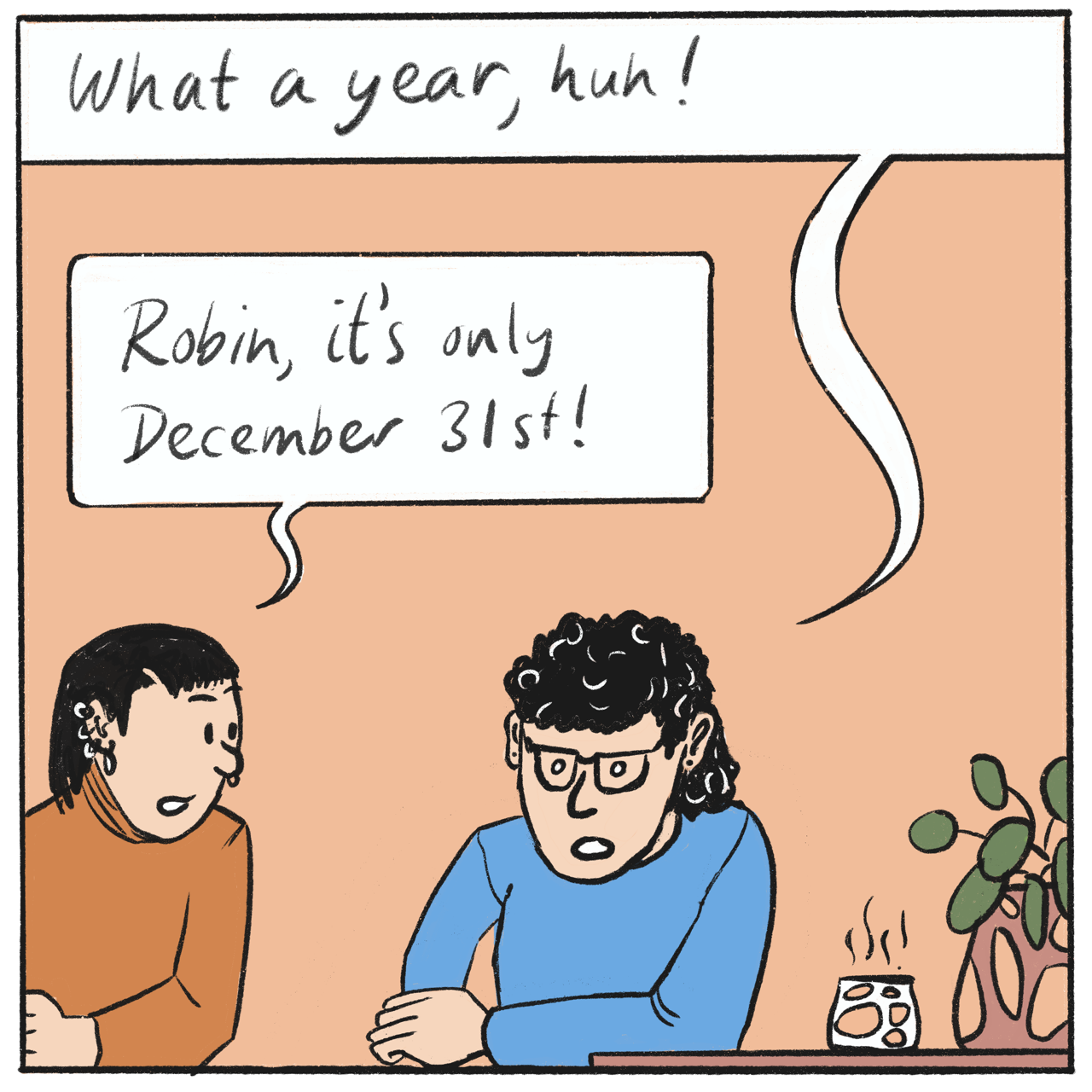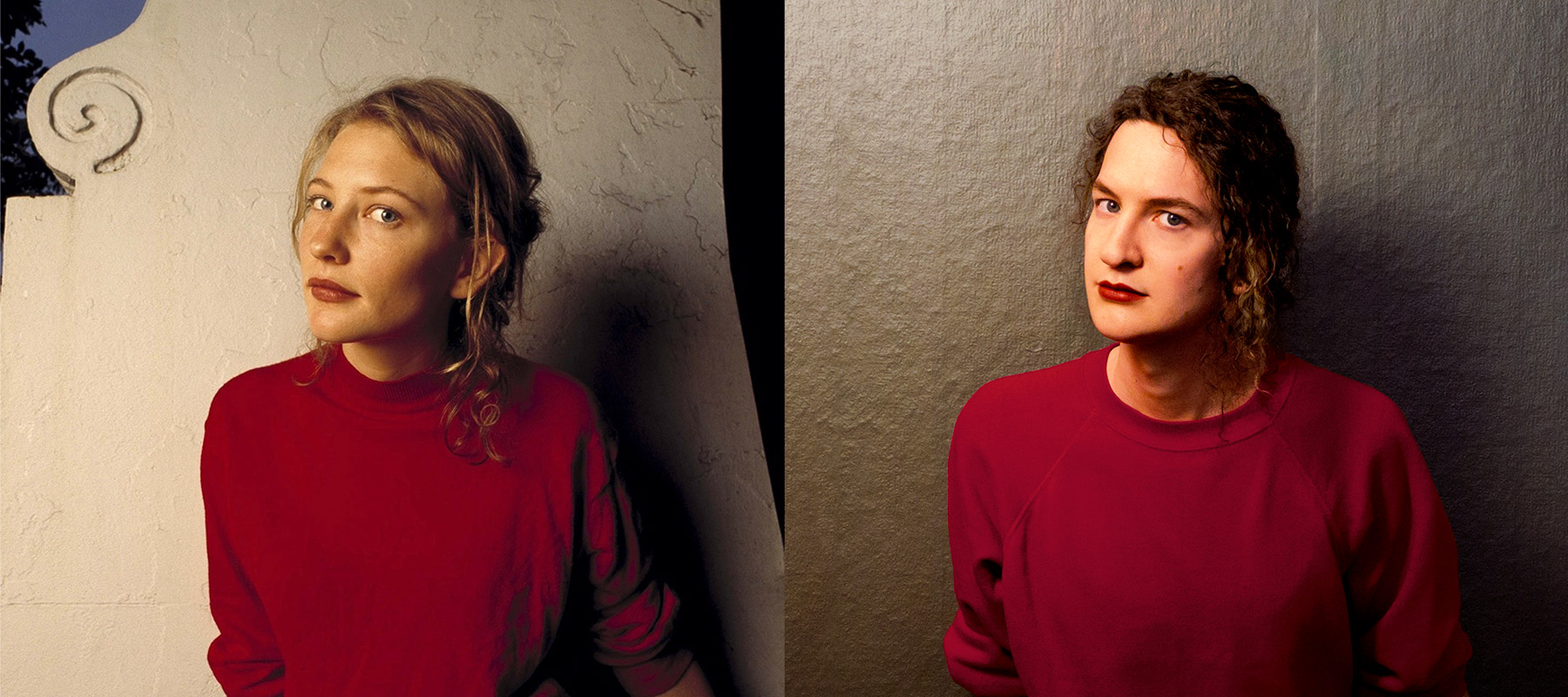2025 started with kidney stones and ended with a root canal. Let’s catch up! I’ll do a few different versions of my answer to the question hey, how was your year?
and then you can pick the angle you’d prefer.

Version one: the medical year
I got a new piercing, a new tattoo, kidney stones, a pussy, complications, more tattoo work, a second small menopause, and a root canal. Yikes! Or yay? It’s a bit fifty-fifty, but I’m fine. In no particular order, here’s some thoughts about all that: dentistry has come a long way and root canals are amazing and, yes, entirely painless; kidney stones are among the worst pain I’ve ever felt and perhaps only surpassed in intensity by getting stabbed in my inguinal canal to drain a haematoma (no, you don’t want either of these things); I can’t believe I get hit with the Minor Menopause attack every time I’ve got enough on my plate; bottom surgery was, all in all, easy, even if at the time, in the hospital bed, pumped full of medication, eating poorly, sleeping even worse, it felt like the worst time of my life.
Version two: for the LinkedIn freaks
I made titles and credits for a few movies. At some point, I was in cinemas in four different ways at the same time: once, props designed for Sentimental Value; once, titles and credits for The Dance Club; once, titles and credits for I Wish You All The Best; and once, finally, acting in Brightly Shining.
I designed more than that, but I can’t talk about all of it yet. Some titles, some new fonts, and a new release for Tiny Type Co: the italics for Tiny Grotesk, which I will release in January. A productive year for type and cinema work for me.
Version three: the year in love
I met my partner at the tail end of 2024, November 23rd but who’s keeping track. I spent a good part of 2024 trying to adjust to a new life, divorced and with a dying dog, trying to figure out what I valued about my life, myself, my friends – where I want to put my energy, how to love, how to love myself properly – and the day after I decided for myself that I was going to live for myself (the day after I received Wikkie’s ashes), that’s of course the day I met Nina, and I realised that living for myself could easily include her.
There’s the thing about crushes, where you reflect on yourself and try to be the best you, in order to impress your crush. Then there’s being liked and loved, where you start thinking about being truthful and also, sometimes, not your best you. A relationship builds on that and lets you be safe in the knowledge that you are choosing to care for each other, every day. And that’s how it’s gone. Every day is a new day, sure, but we recently moved in together and we have a lot of things we want to do. And the best part is that I feel like I’m doing it just as much for myself. I think that’s a good sign.
I’m not gonna be as vague as I was at the top. It’s been a good year and I am and always will be an optimist. I’m a lover and a passionate nerd and I’m a sweet partner and a fun friend. I’m reliable and reliably me, I’m trying and learning and will always do better the next time, and I sure hope I start in a good place.
In the Spring of 2024, when I felt at my worst about the divorce, I had a few tabs open in my browser, tabs with titles along the lines of What is Self Esteem? Six Tips To Improve
, How To Find Self-Love
, and how do i develop self love - Ecosia
. At some point, I closed the tabs. I don’t remember when, but I’ve given up on the question. Maybe I found an answer. But maybe I stopped asking the question entirely. Those feelings aren’t really answerable. They don’t need a simple answer, but a convoluted, complex, slow process. That’s the worst answer, but it’s true. It’s not about the solution, but about trying to solve it. And then, somehow, you forget about what answer you wanted. You end up enjoying the process, of solving, of trying, of learning, of loving, of being yourself and thinking that that, perhaps, is the best thing you can do.
